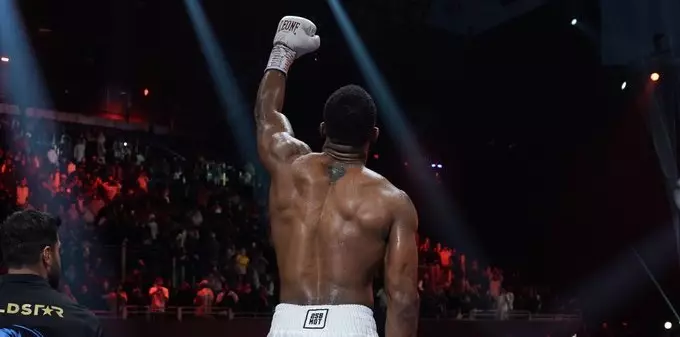Boxing is often heralded as one of the most physically demanding and dangerous sports in the world. Fighters dedicate their lives to perfecting their craft, entering the ring each time knowing they may face not just defeat, but significant injury, or worse. For champions like Anthony Joshua, the stakes are particularly high. With an illustrious career behind him, marked by impressive victories and devastating losses, the question of when to step back becomes complex and emotionally charged. The allure of holding on too long is especially potent for those who have tasted success and fame.
Many boxers struggle with the notion of retirement. It’s not merely about stepping away from a sport; it’s about leaving behind a part of oneself that has defined them for years. Joshua’s recent loss to Daniel Dubois in London has ignited a conversation about his future – and whether staying in the ring is the wisest choice. For someone who has clinched championships and risen to global stardom, stepping away can feel like giving up. This is a common narrative in boxing, where the drive to prove oneself often conflicts with the need for personal safety and wellbeing.
What makes Joshua’s situation particularly concerning is the cumulative damage he has taken throughout his career. It’s not just the physical toll of individual fights but the sum of repeated bouts against elite opponents. Joshua has faced formidable challengers like Andy Ruiz and Wladimir Klitschko, both of whom have inflicted significant damage in their contests. While losing to such high-caliber opponents does not diminish a fighter’s legacy, it raises critical questions about their future in the sport, especially when those losses come as a direct result of a sustained beating.
Several notable champions in boxing history serve as cautionary tales of what can happen when an athlete stays in the ring past their prime. Fighters like Muhammad Ali and Jake LaMotta have become emblematic of the potentially devastating consequences of overextending a career. Although they are revered for their talents, they also faced significant health issues later in life, raising concerns about the long-term impacts of boxing on their bodies and minds.
Despite the risks, many boxers, including Joshua, continue to step into the ring—often against the advice of those who care about their wellbeing. Joshua may find himself at a crossroads: to continue fighting in an effort to prove his resilience or to acknowledge the potential risks to his health and future. The desire to overcome a string of defeats is a powerful motivator. However, at some point, the preservation of one’s health must take precedence over the pursuit of glory.
In a sport where the line between victory and defeat can lead to serious injury or even death, it’s crucial to prioritize the long-term safety of fighters. Joshua might still have the ability to compete well, but how many more punches can he take before the damage becomes irreparable? Each fight from this point on isn’t merely a battle for wins or losses but a gamble with his health and future.
The path forward for fighters like Joshua is fraught with challenges and emotions. While many fans and analysts will be eager to see him return to the ring, it’s essential for Joshua to engage in some honest self-reflection. Should he walk away now, knowing he has made an indelible mark on the sport, or should he risk further damage in a bid for redemption? The decision, ultimately, will not just affect his career but his life beyond boxing.
While boxing is indeed a sport of tremendous legacy, the ultimate question remains: how much longer can a fighter like Anthony Joshua continue to compete without jeopardizing his health? As fans, all we can do is hope that he finds the clarity to make the right choice and prioritizes his long-term safety over fleeting glory.


Leave a Reply